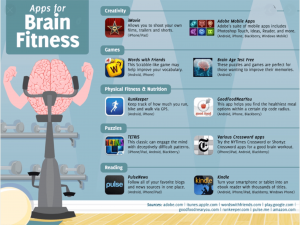It is well appreciated that ‘prehabilitation’ before surgery, especially before major surgeries, is very important. Prehabilitation includes maintaining a healthy diet, exercising, stopping smoking before an operation to optimise the surgery and improve the recovery/rehabilitation times.
However this does not address the post-operative delirium or altered cognitive states which include confusion, loss of memory, being emotionally labile, altered perception and reasoning. Although post-op delirium is common not everyone experiences it and is often more apparent in older patients. Apart from being upsetting it can delay recovery and discharge home.
Therefore there has been a lot of interest and research over the years into post-op delirium and not only into ways to manage it but although into predicting it. Scientists at the Ohio State University have released a study that shows playing brain games for just an hour a day in the weeks before major surgery could reduce the risk of postoperative delirium by more than 60 percent.
“Essentially, your brain can be prepared for surgery, just as the body can, by keeping your mind active and challenged,” says study author Dr. Michelle Humeidan, of Ohio State College of Medicine Wexner Medical College, in a statement. “Patients who practiced neurobics were 40 per cent less likely to experience postoperative delirium than those who did not, and the results improved the more hours they played.”
A neurobic (digital brain game) application was loaded onto electronic tablets and given to 268 patients over the age of 60 who were due to have a major surgery that required a general anaesthetic. The patients were asked to play the brain game for an hour a day before their surgery. The game is designed to exercise memory, speed, attention, flexibility, and problem-solving abilities.
The patients who played more than 10 hours of the brain game reduced their risk of delirium after the surgery by 61%. The patients who played for less that’s 10 hours still saw a benefit with a reduced risk of 50%.
Researchers preferred to use the digital brain game app as they were able to monitor it more easily for the purpose of this trial. However reading books, newspapers and doing crosswords, suduko and puzzles all help keep the brain active and exercised.
Don’t forget it is important to exercise both your body and your brain!




